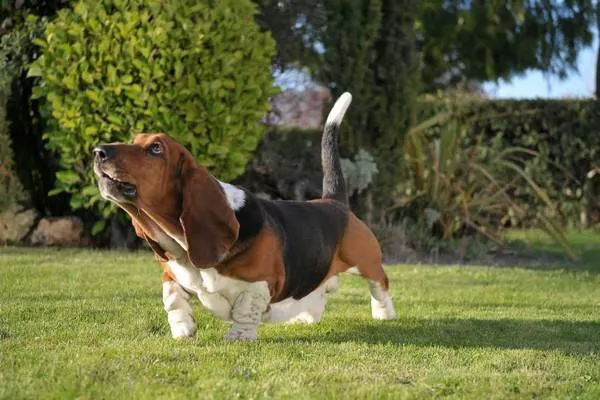Introduction
Basset Hounds are known for their unique appearance, gentle nature, and affectionate personalities. As responsible pet owners, we strive to provide our beloved Basset Hounds with a balanced and nutritious diet that meets their specific dietary requirements. In this comprehensive guide, we will address the question: Can Basset Hounds eat cooked potatoes? We will delve into the nutritional value of potatoes, potential health benefits, safety considerations, and guidelines for incorporating cooked potatoes into your Basset Hound‘s diet.
Understanding the Nutritional Value of Potatoes
Before we determine whether cooked potatoes are suitable for Basset Hounds, let’s examine the nutritional composition of potatoes. Potatoes are a staple food that contain essential nutrients, including carbohydrates, dietary fiber, vitamins, and minerals.
Carbohydrates: Potatoes are a significant source of carbohydrates, providing energy for bodily functions and activities. However, it’s important to note that Basset Hounds have relatively low energy requirements compared to other breeds. Therefore, moderation is key when offering potatoes as part of their diet.
Dietary Fiber: Potatoes are a good source of dietary fiber, which aids in digestion and promotes a healthy gastrointestinal tract. However, Basset Hounds have specific dietary needs, and their fiber requirements should be met primarily through high-quality dog food formulated for their breed and age.
Vitamins and Minerals: Potatoes contain various vitamins and minerals, including vitamin C, vitamin B6, potassium, and magnesium. While these nutrients are essential for overall health, it’s crucial to note that Basset Hounds have specific dietary requirements that should be met through balanced dog food.
Health Benefits of Potatoes for Basset Hounds
While potatoes offer some nutritional value, it’s important to consider the potential health benefits they may provide to Basset Hounds. However, it’s crucial to remember that Basset Hounds have specific dietary needs, and a well-formulated dog food should be the primary source of their nutrition.
Digestive Health: The dietary fiber present in potatoes can support digestive health in Basset Hounds. Adequate fiber intake may help regulate bowel movements and prevent gastrointestinal issues such as constipation or diarrhea.
Vitamin C: Potatoes contain vitamin C, which is an antioxidant that aids in the immune system’s function. A strong immune system can help Basset Hounds fight off infections and illnesses more effectively.
Energy Boost: The carbohydrates in potatoes can provide a quick energy boost to Basset Hounds, especially during periods of increased activity or exercise. However, it’s important to offer them in moderation, considering the breed’s relatively low energy requirements.
Safety Considerations and Potential Risks
While cooked potatoes can offer certain health benefits, there are safety considerations and potential risks to be aware of before feeding them to your Basset Hound.
Toxicity: Raw and green potatoes, as well as the potato plant itself, contain a toxic substance called solanine. However, cooking potatoes at high temperatures effectively reduces solanine levels, making them safe for consumption. It’s essential to ensure that the potatoes are cooked thoroughly before feeding them to your Basset Hound.
Allergies and Sensitivities: Just like humans, dogs can develop allergies or sensitivities to certain foods, including potatoes. It’s important to introduce potatoes gradually into your Basset Hound’s diet and observe for any signs of adverse reactions such as itching, gastrointestinal upset, or skin irritations. If any symptoms occur, consult your veterinarian.
Moderation and Portion Control: While cooked potatoes can be included in a Basset Hound’s diet, it’s crucial to offer them in moderation and as part of a balanced meal plan. Overfeeding potatoes or any other food can lead to weight gain, digestive issues, or nutrient imbalances. It’s always recommended to consult your veterinarian for guidance on appropriate portion sizes.
Incorporating Cooked Potatoes Into Your Basset Hound’s Diet
If you decide to incorporate cooked potatoes into your Basset Hound’s diet, it’s essential to do so responsibly and with careful consideration. Here are some guidelines to follow:
Consult Your Veterinarian: Before making any significant changes to your Basset Hound’s diet, it’s advisable to consult your veterinarian. They can provide specific recommendations based on your dog’s age, health condition, and individual needs.
Choose the Right Potatoes: Opt for plain, cooked potatoes without any added seasonings, spices, or oils. Avoid using raw or green potatoes, as they can contain toxic levels of solanine.
Cooking Methods: Boiling or baking potatoes are the preferred cooking methods. Ensure that the potatoes are thoroughly cooked to eliminate any potential toxins or digestive difficulties.
Preparation: Remove the skin and mash the potatoes into a soft, easily digestible consistency. Avoid adding butter, salt, or other flavorings that may be unhealthy for your Basset Hound.
Portion Control: Offer cooked potatoes as a small addition to your Basset Hound’s regular meal, rather than replacing a significant portion of their balanced dog food. Moderation and portion control are crucial to maintaining a healthy and balanced diet.
Monitor for Adverse Reactions: After introducing cooked potatoes into your Basset Hound’s diet, monitor them closely for any signs of allergies, sensitivities, or digestive issues. If any symptoms occur, discontinue feeding potatoes and consult your veterinarian.
Conclusion
In conclusion, cooked potatoes can be safely incorporated into a Basset Hound’s diet when prepared and offered responsibly. While potatoes offer some nutritional value and potential health benefits, they should be considered as a supplementary addition to a well-formulated dog food that meets the specific dietary needs of Basset Hounds. Always consult your veterinarian for personalized advice and recommendations regarding your Basset Hound’s diet. By following these guidelines and considering the individual needs of your Basset Hound, you can make informed decisions about their nutrition and well-being.


